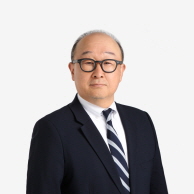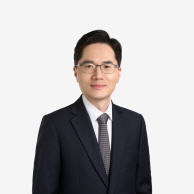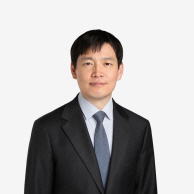본문
“Consideration for the use of patented technology in Korea constitutes domestic source income” Supreme Court En Banc Decision Announced
- Newsletters
- 2025.09.23
On September 18, 2025, the Supreme Court of Korea issued a landmark en banc decision, ruling that royalties paid for the use of patented technology within Korea constitute domestic-source income, even if the patent is not registered in Korea. This judgment overturns approximately 30 years of precedent, which had held that royalties paid for the right to use non-domestically registered patents could not be considered domestic-source income.
As a result of this ruling, companies paying patent royalties to U.S. corporations must now withhold taxes on payments corresponding to the domestic use regardless of whether the patents are registered in Korea. Furthermore, companies entering into patent license agreements with U.S. entities will need to more clearly define provisions regarding the scope of tax withholding.
1. Background and Issue
2. Court's Decision
3. Implications
1. Background and Issue
Around 2011, a Korean corporation (the "Plaintiff", the withholding agent, acting on behalf of the taxpayer), was sued for patent infringement in the United States by a U.S. corporation. The lawsuit was settled in December 2013, under which the Plaintiff agreed to pay royalties for a worldwide license to the U.S.-registered patent.
The Plaintiff withheld and paid KRW 300 million in corporate tax to the Korean tax authority from these royalty payments. However, in June 2015, the Plaintiff filed for a refund of the withheld tax, arguing that royalties for a patent registered abroad but not in Korea do not constitute domestic-source income. In February 2019, the tax authority (the "Defendant") denied this request, leading the Plaintiff to file a lawsuit.
The central issue in this case was whether payments for the use of patented technology in Korea should be treated as domestic-source income, even if the patent itself is not registered in the country.
2. Court's Decision
A. The Lower Court's Decision
The appellate court (Suwon High Court), adhering to previous Supreme Court precedent, relied on the principle of patent territoriality. This principle holds that the use of a non-domestically registered patent cannot be legally recognized in Korea. Consequently, the court ruled that the royalties were not domestic-source income. It concluded that there was no need to determine whether the patented technology was actually used in the domestic manufacturing and sales process; the lack of domestic registration was sufficient to exclude it from taxation.
B. The Supreme Court's Decision (Majority Opinion)
The Supreme Court en banc reversed and remanded the lower court's decision, holding that "if the technology of a patent not registered in Korea is used for manufacturing, sales, etc., in Korea, the corresponding royalties are domestic-source income." In doing so, it overturned all previous Supreme Court rulings to the contrary.
The Supreme Court provided the following reasoning:
•While the legal effect of a patent right is limited to the country where it is registered (the principle of territoriality), the patented technology itself—such as manufacturing methods, techniques, and information—can be used anywhere, regardless of national borders.
•Article 14(4) of the ROK-U.S. Tax Treaty lists various types of intangible assets, including patents, copyrights, know-how, and knowledge . The Court determined that the term "use" should be interpreted consistently across these assets to mean the use of their content, such as the technology or information, rather than the use of the exclusive right granted by registration.
•The principle of territoriality serves as a standard for determining a patent's scope of validity and whether infringement has occurred; it does not restrict where the patented technology can be used under a contract. It is entirely possible for a Korean company to enter into a contract with a foreign patent holder to use a non-domestically registered patented technology in Korea, and such an agreement does not violate the territoriality principle.
•Based on this logic, there is no special reason to exclude the application of domestic tax law. Therefore, the provision in the former Corporate Tax Act (Article 93, Item 8, proviso) must be applied. This provision specifies that a patent registered abroad is considered "used in Korea" if it is employed in domestic manufacturing, sales, or other business activities.
In conclusion, the Supreme Court shifted the standard for determining domestic-source income from the patent's registration status to whether the underlying technology was factually used in Korea, thereby overturning its long-established precedent.
3. Implications
A. Previous Decisions
Previously, the Supreme Court strictly applied the principle of patent territoriality. It held that since a patent's exclusive rights are effective only in the country of registration, the "use" of a patent not registered in Korea was conceptually impossible within the country. Accordingly, the Court consistently ruled that royalties paid by domestic companies to U.S. patent holders were not domestic-source income and thus not subject to Korean taxation.
B. Significance of the New Decision
This en banc decision marks a significant change by distinguishing between the "use of a patent right" and the "use of patented technology." The ruling clarifies that in the realm of tax law, economic substance—specifically, the location where the technology is actually used—should be the standard for determining tax jurisdiction, rather than the legal scope of the right.
This decision is expected to lead tax authorities to more actively assess taxes on patent royalties paid to foreign corporations, regardless of domestic registration, as long as the technology is substantively used in business activities in Korea. Domestic companies paying royalties under overseas patent license agreements will now need to carefully review what portion of the patents are actually used domestically to ensure compliance with their withholding tax obligations.
While the ruling appears to promote the prevention of national wealth outflow by emphasizing economic substance, it also raises practical issues, such as the burden of proof in demonstrating domestic use and the potential for legal confusion. These issues are likely to be further debated in the remanded case and could have a significant impact on tax policy and the international investment environment.
The Tax Group of Yoon & Yang LLC provides premier one-stop total services in the fields of tax advisory and litigation. For a wide range of clients' economic activities, the group offers proactive tax plans and response strategies designed to maximize tax savings and minimize tax risk, delivering services best suited for a rapidly changing environment.
- Practice Areas
- #Tax Litigation




